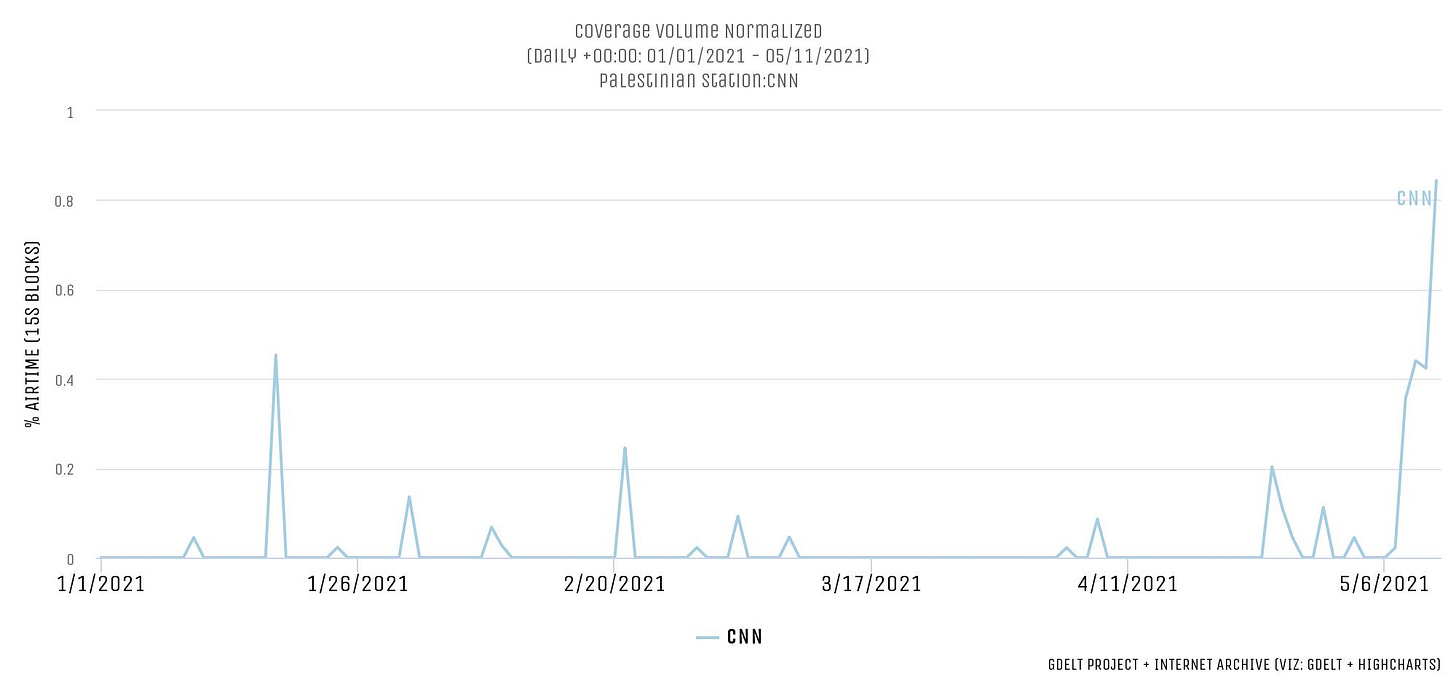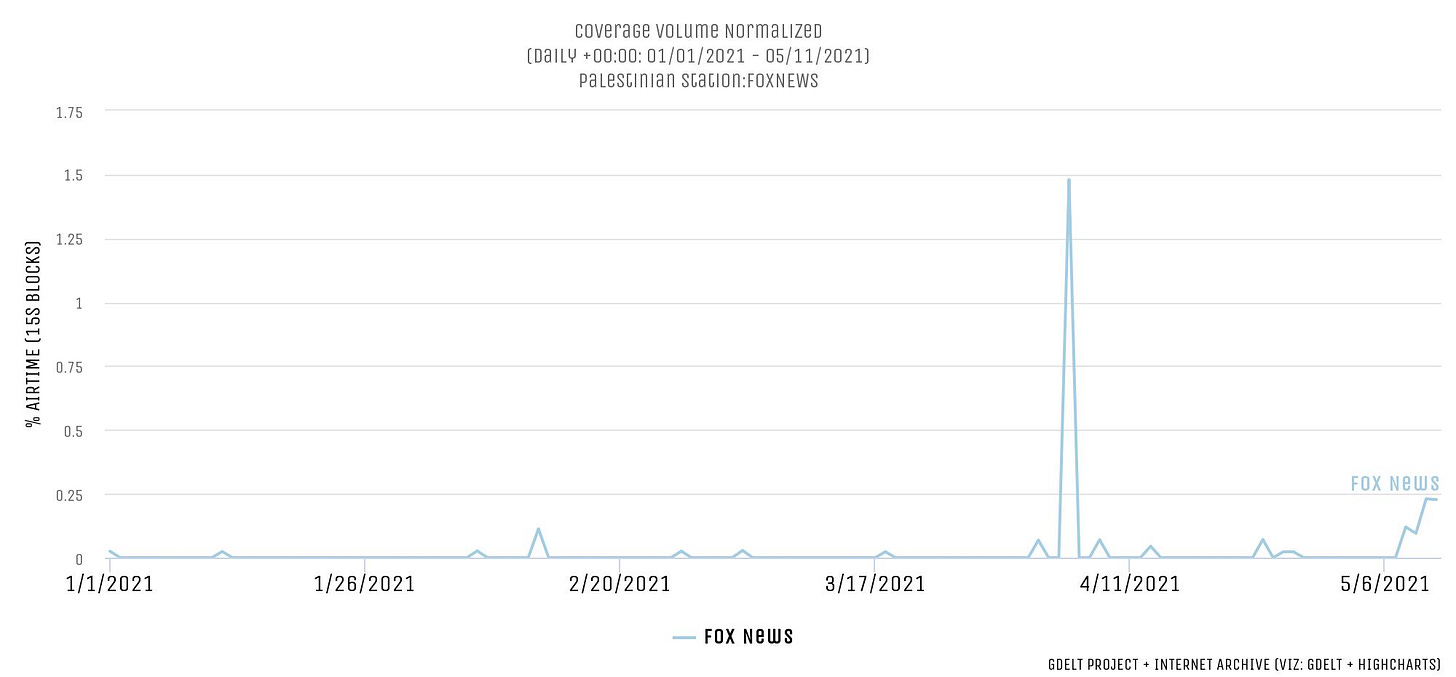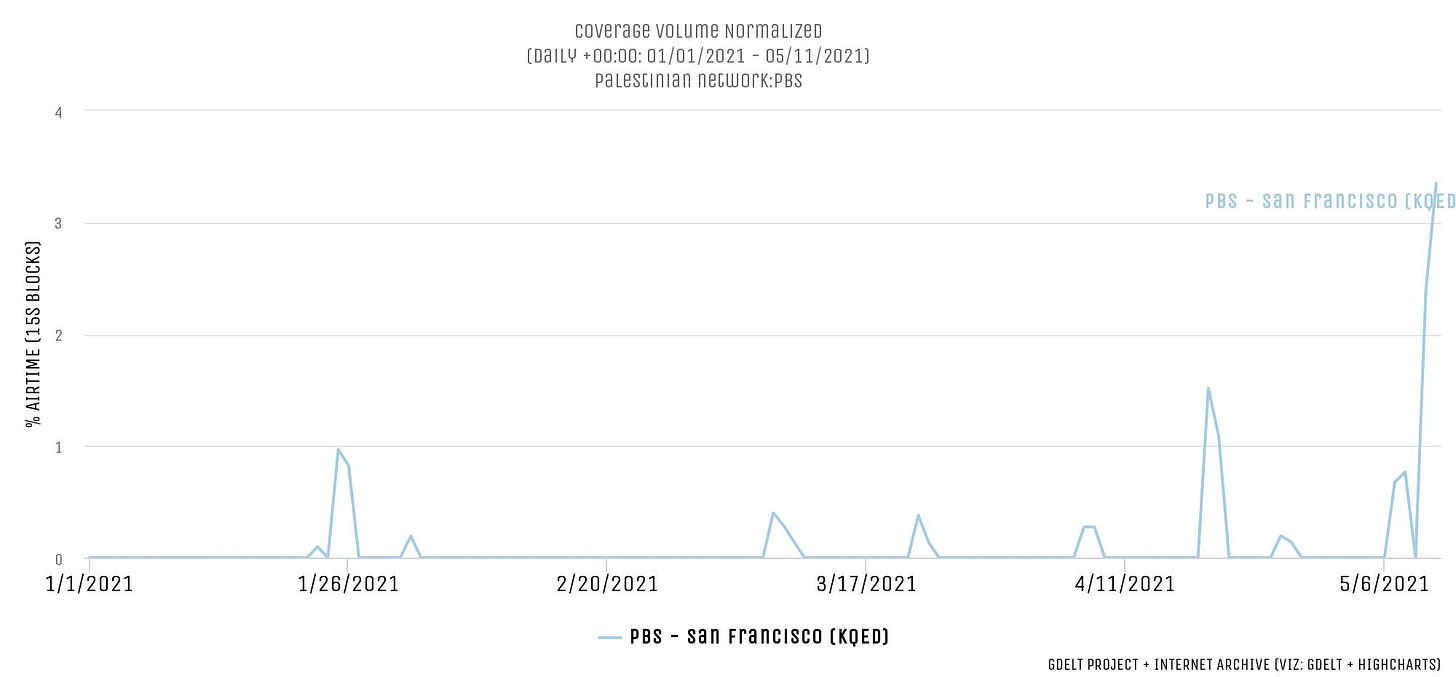Only Covering Palestinians When There's Violence Is A Recipe For More Violence
Opposing terrorism means not incentivizing it.

Israeli analysts commonly refer to periodic fighting with Gaza — with outbreaks of intense fighting occurring every few years — as “mowing the grass.” The fighting is not intended to ever permanently end with any kind of negotiated solution. It’s simply something you have to do every now and then, as a chore.
In the American political scene, politicians lean heavily towards Israel in this periodic violence. They point to rocket attacks from Hamas and other Palestinian factions as acts of aggression, implying that Israel’s far greater military might wouldn’t be deployed at all if the Palestinians did not insist on using violence.
These politicians aren’t wrong about the futility and illegality of Palestinian violence. The rockets fired from Gaza lack any kind of guidance systems and are basically fired in the general direction of Israel. Although Israel’s military superiority and Iron Dome system protect Israelis against most casualties, these rockets risk civilian lives; they are not a legitimate form of violent resistance to the occupation because they are not specifically aimed at the Israeli military.
But as we rightly criticize Palestinian violence, it’s worth thinking about how little we do to recognize the Palestinian struggle when there isn’t any violence at all.
Please help support our work by subscribing to INQUIRE. Get access to subscriber-only posts and more for $6 a month or $60 a year.
The latest round of violence was set off by rising tensions around the coming displacement of Palestinian families in the Jerusalem neighborhood of Sheik Jarrah. The families who live there have lived there basically their entire lives; some Israeli settler organizations claim that prior to 1948, many of the homes there were owned by Jewish families. They’ve been petitioning the Israeli court system to evict these Palestinian families.
“The land belongs to Jews for almost a hundred years. Jews lived there, and Jews own the land since then,” Aryeh King, the Deputy Mayor of Jerusalem intoned. Human rights organizations and international observers don’t agree. They view these displacements as part of a larger campaign to push Palestinians off the land they’ve lived on for generations now.
Portions of the international and alternative press have covered a Palestinian nonviolent movement to save the Palestinian families of Sheikh Jarrah for months. But among the American press, there’s been little interest in legal and nonviolent activism by Palestinians to protect their homes and their human rights.
Using the Television News Archive, I did a search of how often the term “Palestinian” came up in the news this year.
As you can see, on network after network, the Palestinians merited little mention over the past few months, as they conducted a nonviolent activist campaign to defend their rights. Only when violence broke out — when heavy clashes in Jerusalem began in May which Hamas soon joined with rocket fire from Gaza, setting off the fighting between Hamas and the Israeli Defense Forces now — did the news see fit to offer them heavy coverage. (The one outlier is Fox, which isn’t covering the issue very much even now.)
CNN
MSNBC
Fox News
PBS
On the one hand, we tell the Palestinians that they’re wrong to use violence. Our politicians speak in unison about the evils of firing rockets at Israeli cities or clashing with the Israeli police and military in Jerusalem.
And yet if you search for Sheikh Jarrah on the CNN website, you’ll see that it was only covered this year starting on May 7 — that’s after the violence started.
This is the problem. When Palestinians protest legally and nonviolently against the occupation and the abrogation of their human rights, our news media barely covers it. It isn’t seen as sexy or sensational the same way Palestinian kids throwing rocks at Israeli police or Hamas firing its rockets at Israeli cities is. As the old news adage goes, if it bleeds, it leads.
By refusing to pay attention to this region and this conflict unless there’s bloodshed, we are basically telling the Palestinians that the only way they can get attention is to engage in violence. If you believe, as I do, that both the Israeli occupation and Palestinian terrorism are horrible, then you have to recognize that this is a terrible incentive structure that we’ve created, one that only makes terrorism and violence more likely, not less likely.
Please help support our work by subscribing to INQUIRE. Get access to subscriber-only posts and more for $6 a month or $60 a year.








